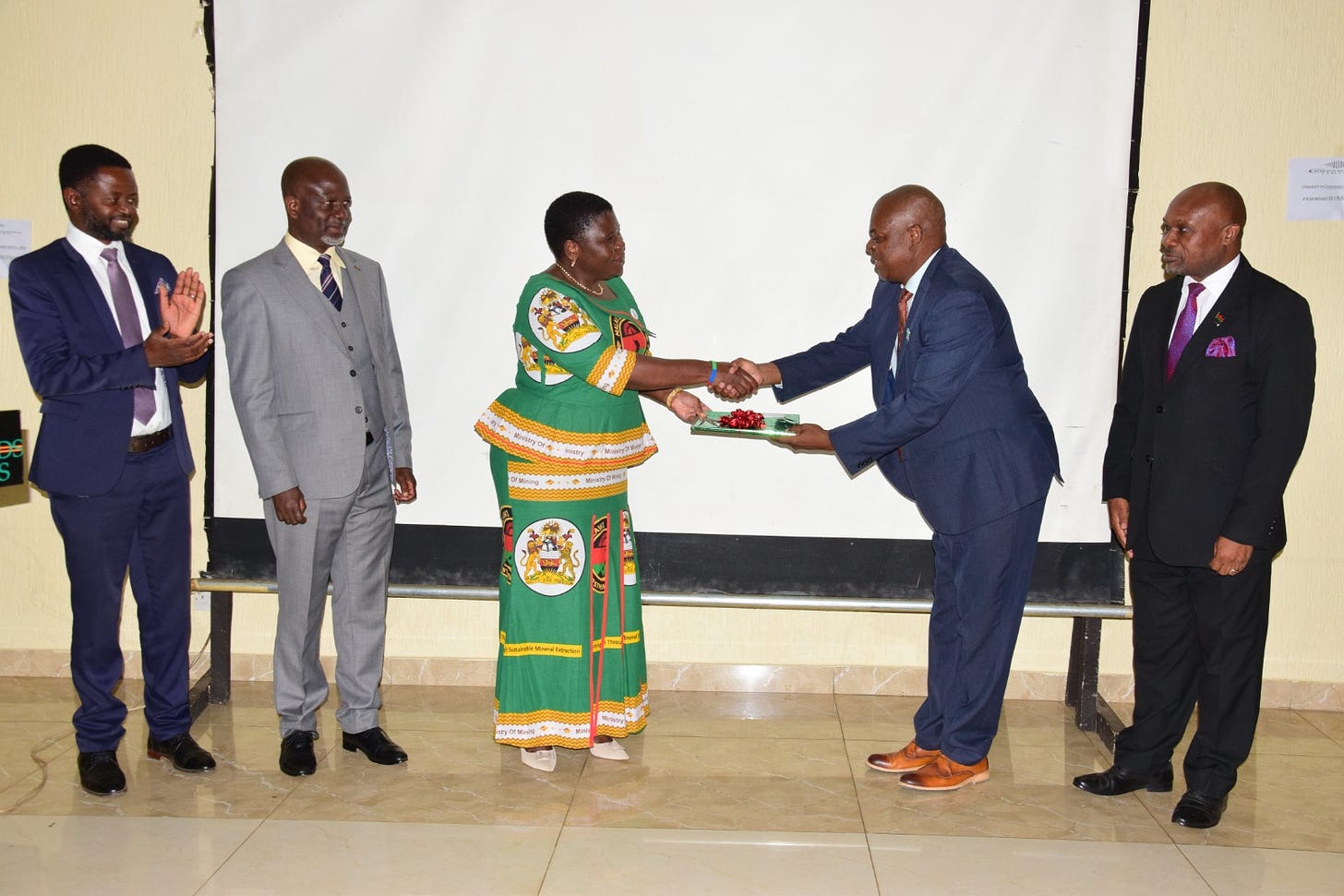New Standards Safeguard Mining Workers' Health in Malawi
Studies have revealed that the population at risk of developing TB in the communities has almost a 10 times increased chance of getting TB if they are working in the mining sector.
LILONGWE, Malawi- The Malawi government has launched new Occupational Safety and Health Standards for the mining sector aimed at strengthening worker protections and promoting safety, writes Tiwonge Kampondeni.
Minister of Mining Monica Chang'anamuno unveiled the standards on Thursday in Lilongwe, highlighting their significance in establishing a regulatory framework for the well-being of mining industry employees in the country.
"The formulation of these Standards is a gigantic achievement and it demonstrates our commitment to promoting mining safety and health as well as combating TB and other occupational hazards," Chang'anamuno said at the launch.
The standards are part of Malawi's commitment to the Malawi 2063 agenda and were developed under the Southern Africa Tuberculosis and Health Systems Support Project (SATBHSSP) with backing from the World Bank.
Malawi is the only country among Lesotho, Zambia and Mozambique to adopt such mining safety standards under the project which started in 2017 and ends this June.
Chang'anamuno also announced that the outdated Mines and Minerals Act of 1981 has been replaced with the new Mines and Minerals Act of 2019, which will soon be gazetted.
The Mines Safety Regulations of 1982 have been revised as well, resulting in seven new sets of Mines Safety and Health Regulations.
"These regulations, including the Occupational Safety and Health Standards, aim to promote good practices and uniformity in the mining industry," she added.
The standards were formulated through collaboration between the Ministry of Mining and the Malawi Bureau of Standards (MBS), which began work in 2022 as part of developing the prescribed mining safety and health regulations.
MBS Director General Professor Bernard Thole commended the mining ministry for recognizing the importance of standards within the legal framework.
"It is common knowledge that apart from trade facilitation, standards are key to environmental protection and promotion of human health and safety. Mining has long been recognized as an arduous occupation associated with elevated risks for morbidity and mortality," Thole said.
Dr. James Mpunga, Coordinator for SATBHSSP and the National TB & Leprosy Elimination Program at the Ministry of Health, stated the standards will address health regulation gaps that existed in the mining sector previously.
Studies have revealed that the population at risk of developing TB in the communities has almost a 10 times increased chance of getting TB if they are working in the mining sector.
"There is need to enforce the launched standards vigilantly so that people can comply with them and, in the process, reduce the burden of TB in the mining sector," Mpunga said.
The three ministries of Health, Mining and Labor collaborated on implementing the SATBHSSP project in Malawi.



